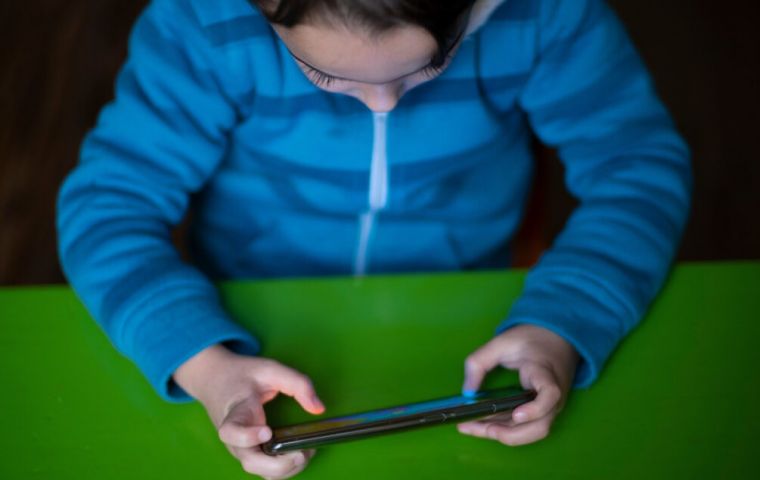MercoPress. South Atlantic News Agency
Lula signs into law the banning of cell phones in elementary schools
 We need to go back to allowing humanism not to be replaced by algorithms,” Lula stressed
We need to go back to allowing humanism not to be replaced by algorithms,” Lula stressed Brazilian President Luiz Inácio Lula da Silva signed Monday into law Bill 104/2015 restricting the use of portable electronic devices such as cell phones in public and private elementary schools nationwide. A presidential decree is due in the next 30 days to regulate the measure so that it becomes valid by the start of the school year in February. The bill was approved by Congress at the end of last year.
“This sanction here means the recognition of the work of all the serious people who take care of education, of all the people who want to take care of the children and adolescents of this country,” said Lula, who praised lawmakers for approving the initiative.
”Imagine a teacher giving a lesson and, when she looks at the students, each one is looking at their cell phone, one is in China, another is in Sweden, another is in Japan, another is in another state talking to people who have nothing to do with the lesson (...) We need to go back to allowing humanism not to be replaced by algorithms,“ Lula stressed.
Countries such as France, Spain, Greece, Denmark, Italy, and the Netherlands have already adopted legislation restricting the use of cell phones in schools. Supported by the federal government and experts, the bill reached a broad consensus in the legislature, uniting both government and opposition members.
”You can't have a student in the classroom, on TikTok, on social media, when the teacher is teaching. Every time a student receives a notification, it's as if they've left the classroom. Every time he receives a notification when he's in a conversation circle, it's as if we've lost his attention,“ said Rio de Janeiro's Education Secretary Renan Ferreirinha, who authored the bill. In his view, it was one of the main victories of the century in Brazilian education.
Education Minister Camilo Santana explained that the law restricts the use of these devices in the classroom and during breaks for personal purposes but exceptions can be made for pedagogical purposes, under the supervision of teachers, or in cases of people who need support from the device for technological accessibility or for some health need.
”We're not against access to technology, not least because there's no turning back in today's world. But we want this technology, this tool, to be used properly and especially in the important age groups of children and adolescents,“ Santana pointed out while warning about the increasingly prolonged use of cell phones by children.
”We're taking action at school, but it's important to make parents aware of limiting and controlling the use of these devices outside the classroom, outside school,“ he added. He also asked for the engagement of families and school communities in enforcing the new law.
”The National Education Council is going to make a resolution to guide the networks, the schools, on how to do this without it seeming like oppression,” said National Secretary for the Rights of Children and Adolescents, Maria do Pilar Lacerda Almeida e Silva, who coordinates the Basic Education Chamber of the National Education Council (CNE).
(Source: Agencia Brasil)




Top Comments
Disclaimer & comment rulesCommenting for this story is now closed.
If you have a Facebook account, become a fan and comment on our Facebook Page!